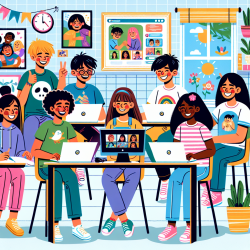Introduction
As a Special Education Director, it is crucial to stay informed about effective interventions for students with Autism Spectrum Disorder (ASD). The Program for the Education and Enrichment of Relational Skills (PEERS) is one such intervention that has shown promising results in improving social skills among adolescents with ASD. A recent study, "Examining the Treatment Efficacy of PEERS in Japan: Improving Social Skills Among Adolescents with Autism Spectrum Disorder," provides valuable insights into the program's effectiveness in a Japanese context.
Understanding PEERS
Originally developed in the United States, PEERS is an evidence-based social skills training program designed to help adolescents with ASD improve their social functioning. The program focuses on making friends and maintaining relationships, which are critical areas for adolescents with ASD who often struggle with social communication and interaction.
Key Findings from the Study
The study conducted in Japan demonstrated that with cultural and linguistic adaptations, PEERS effectively improved social functioning in adolescents with ASD. The program showed positive results in areas such as:
- Socialization
- Communication
- Knowledge of social skills
- Reduction in autistic mannerisms
- Behavioral and emotional problems
Moreover, most of these treatment gains were maintained at a 3-month follow-up assessment, highlighting the program's long-term effectiveness.
Implementing PEERS: Practical Steps for Practitioners
For practitioners looking to implement PEERS or similar programs, consider the following steps:
- Cultural Adaptation: Tailor the program to fit the cultural context of your students. This may involve modifying certain activities or language used in the curriculum.
- Parent Involvement: Engage parents as active participants in the program. Their involvement is crucial for reinforcing skills learned in sessions and ensuring long-term success.
- Continuous Evaluation: Regularly assess the program's effectiveness through feedback from students and parents, and make necessary adjustments to improve outcomes.
Encouraging Further Research
While the study provides encouraging results, further research is needed to explore the program's applicability in different cultural contexts and its long-term impact. Practitioners are encouraged to collaborate with researchers to contribute to this growing body of knowledge.
Conclusion
The PEERS program offers a structured approach to improving social skills in adolescents with ASD. By implementing culturally adapted versions of such evidence-based programs, practitioners can make a significant difference in the lives of their students. For those interested in exploring the original research paper, please follow this link: Examining the Treatment Efficacy of PEERS in Japan: Improving Social Skills Among Adolescents with Autism Spectrum Disorder.










